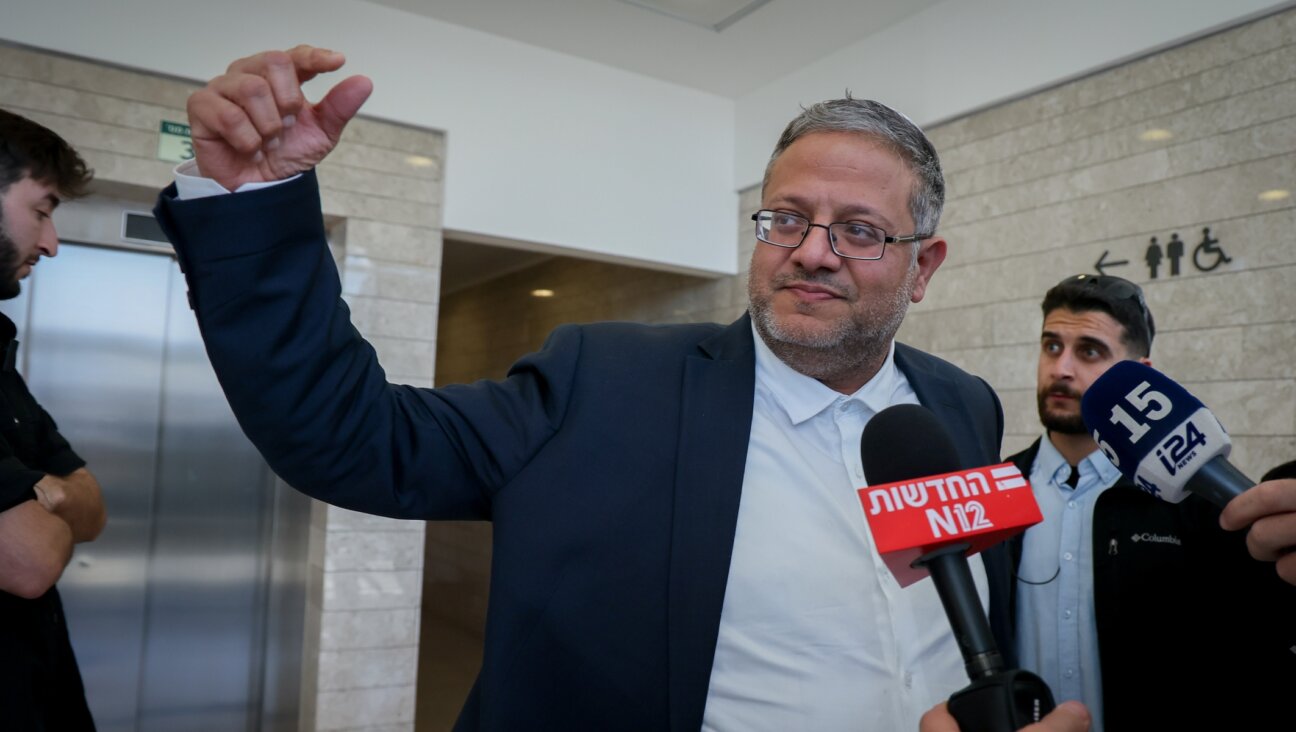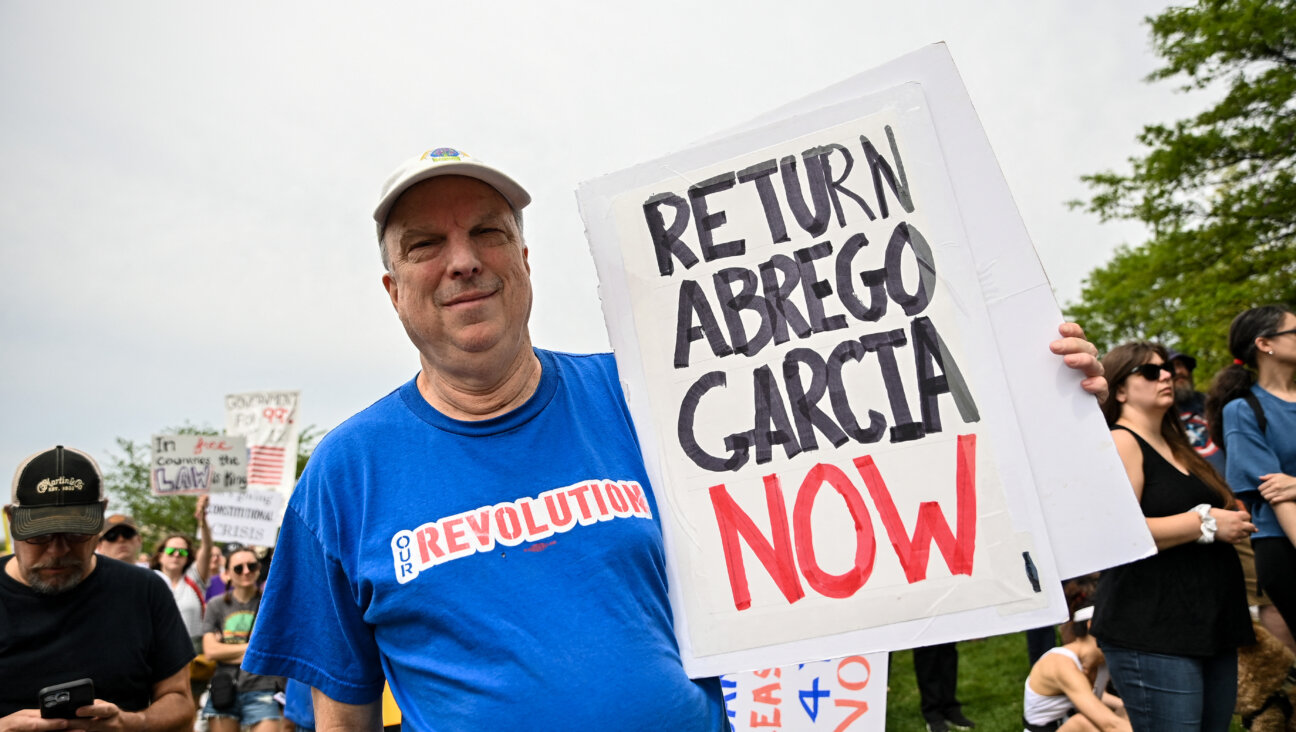Making a Turn Onto J Street
I was born in Israel, on Kibbutz Nachshon. Driving from Nachshon on the road up to Jerusalem, you pass Latrun, where Joshua defeated the Amorites, Judah Maccabee won his first battle and Ariel Sharon fought to break the 1948 blockade of the holy city. History is everywhere in Israel, and it’s very much alive.
In 1975, when I was 2, my parents moved to America, where I would spend most of my childhood. At age 18, I made what was, in retrospect, the first adult decision of my life: Instead of going to college with my friends, I chose to make aliyah, to join the Israeli army. I did so not out a sense of adventure or gung-ho militarism, but out of a deep commitment to Israel’s security and a willingness to put myself at risk to defend that security. I served with the Givati Brigade, seeing combat in Lebanon, and was proud to become a part of that living history.
Recently I took another kind of risk, but for the very same reason.
I chose to leave a great job as the Washington director for a wonderful and well-respected organization, the Jewish Council for Public Affairs, to join the new pro-Israel, pro-peace advocacy group J Street. Not everyone in the Jewish community, my professional home for more than a decade, is familiar with J Street yet, and some are uncomfortable with it.
But I take this step with tremendous conviction, because I believe that we are living at a critical moment for Israel and that we must — I must — do everything possible to work toward achieving the still-elusive peace that is unquestionably necessary to bringing her real security and prosperity.
There is strong support for Israel here in the United States. But there are also legitimate questions that deserve thoughtful answers.
In the past year in particular I’ve heard a recurring question from pulpit rabbis and federation executives, student leaders and the unaffiliated. They are grappling with the question of how to reconcile their love and support for Israel with their discomfort about settlement policy and other political realities. Their heads support a strong American role in helping Israel make peace with its neighbors, but their kishkes are uncomfortable with the idea of anyone “telling Israel what to do.”
But we’re in a unique moment with President Obama in the White House. Here is a strongly pro-Israel leader who understands that the Arab-Israeli conflict must be actively resolved, not treated as a zero-sum game or an acceptable status quo to be managed.
Indeed, there really isn’t such a thing as a “status quo” — there is moving forward, or moving backward. There is moving toward a better tomorrow, or sliding back toward greater violence, more tears, more pain. Every additional death makes a solution less possible; every rocket fired and every settlement expansion builds hatred and mistrust and moves us further from peace.
What President Obama understands best, however, is that we’re running out of time. If we want to see Israel secure and thriving, we have to act quickly. If we don’t start moving forward with real urgency, we’re likely to move so far backward that a two-state solution will be impossible.
I’m not telling Israel what to do. What I am trying to do by joining J Street is to create the political support in this country for Israel to finally do what its citizens, soldiers and supporters have always longed for: make peace with its neighbors, and disperse the clouds of war that for so long have darkened its horizons.
It’s time for the American Jewish community to step out of the Israel closet and say: “We love Israel, but that doesn’t mean we’ll remain silent when we disagree.” It’s time for all of us who grew up loving Israel and praying for peace to stop letting the mythical notion that American Jews speak with a single voice keep us from supporting Israel’s security and future by calling for peace.
My 7-year-old son asked me to explain the difference between my old job and my new job. When I finished and asked him if he understood, he said, “Abba, your old job was to try and help people who need help for all kinds of things. Now you’re going to help Israel so that no one else has to fight in wars like you did.”
Sometimes it takes a child’s wisdom to really make things clear.
Hadar Susskind is the incoming director of policy and strategy at J Street.
The Forward is free to read, but it isn’t free to produce

I hope you appreciated this article. Before you go, I’d like to ask you to please support the Forward.
Now more than ever, American Jews need independent news they can trust, with reporting driven by truth, not ideology. We serve you, not any ideological agenda.
At a time when other newsrooms are closing or cutting back, the Forward has removed its paywall and invested additional resources to report on the ground from Israel and around the U.S. on the impact of the war, rising antisemitism and polarized discourse.
This is a great time to support independent Jewish journalism you rely on. Make a gift today!
— Rachel Fishman Feddersen, Publisher and CEO
Support our mission to tell the Jewish story fully and fairly.
Most Popular
- 1

Opinion The dangerous Nazi legend behind Trump’s ruthless grab for power
- 2

News Who is Alan Garber, the Jewish Harvard president who stood up to Trump over antisemitism?
- 3

News Student protesters being deported are not ‘martyrs and heroes,’ says former antisemitism envoy
- 4

Opinion What Jewish university presidents say: Trump is exploiting campus antisemitism, not fighting it
In Case You Missed It
-
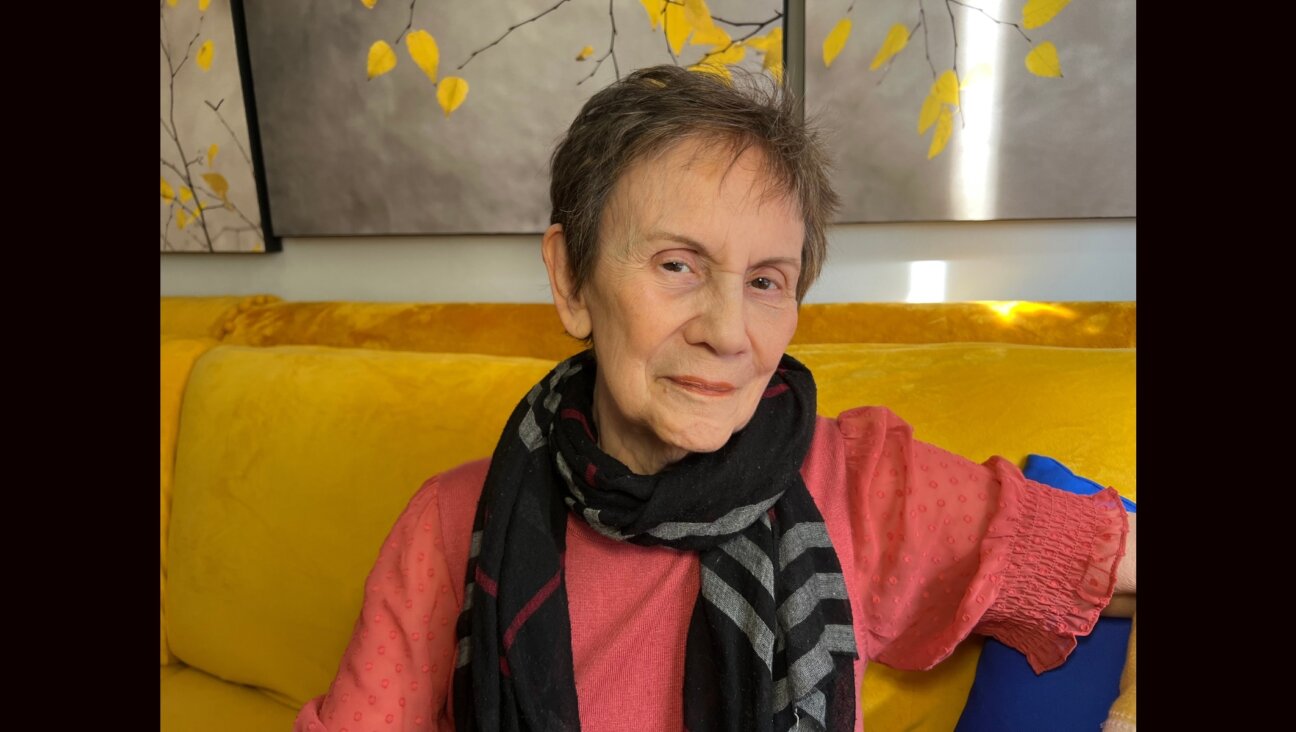
Culture This Jewish New Yorker survived the Holocaust and the Hungarian Revolution, and is still helping others today
-
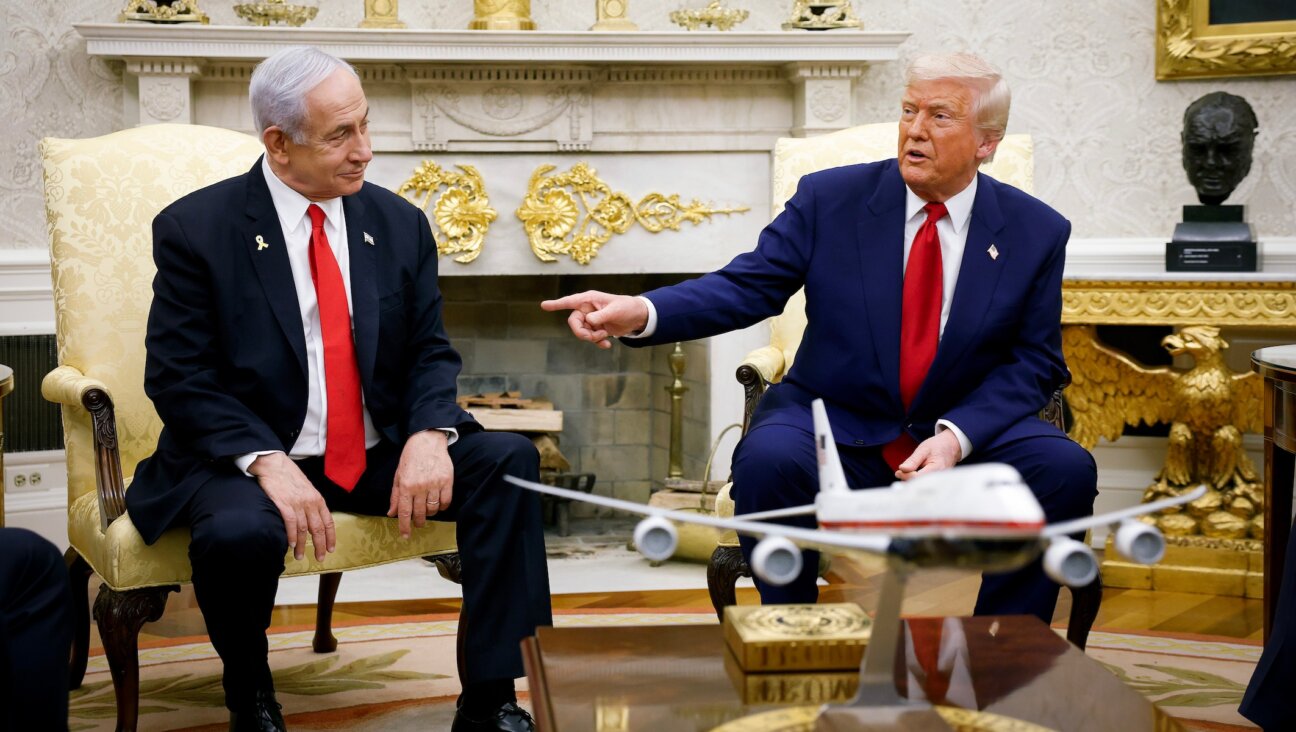
Fast Forward Trump says he and Netanyahu are ‘on the same side of every issue’ following talks on Iran, tariffs
-
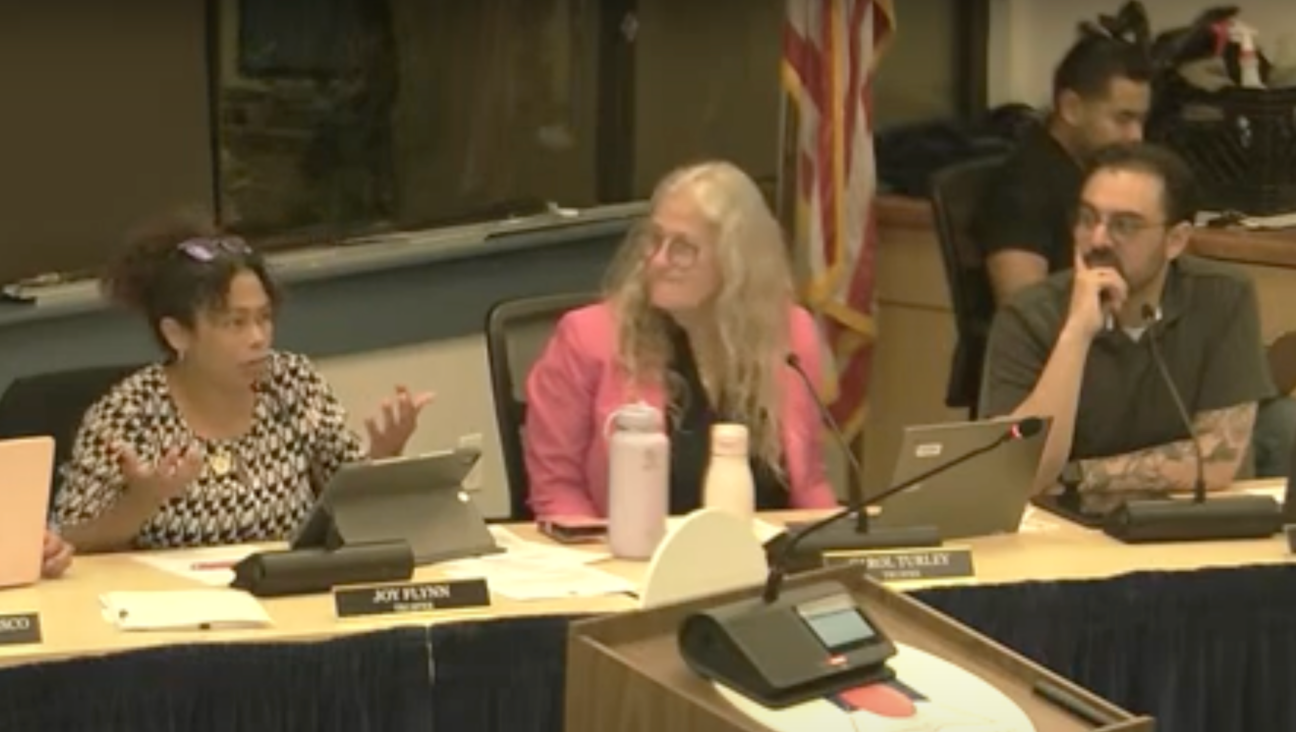
Fast Forward California school board members accused of antisemitism during contentious meeting
-

Fast Forward Over 100 Chicago-area rabbis and cantors condemn Trump’s campus crackdown
-
Shop the Forward Store
100% of profits support our journalism
Republish This Story
Please read before republishing
We’re happy to make this story available to republish for free, unless it originated with JTA, Haaretz or another publication (as indicated on the article) and as long as you follow our guidelines.
You must comply with the following:
- Credit the Forward
- Retain our pixel
- Preserve our canonical link in Google search
- Add a noindex tag in Google search
See our full guidelines for more information, and this guide for detail about canonical URLs.
To republish, copy the HTML by clicking on the yellow button to the right; it includes our tracking pixel, all paragraph styles and hyperlinks, the author byline and credit to the Forward. It does not include images; to avoid copyright violations, you must add them manually, following our guidelines. Please email us at [email protected], subject line “republish,” with any questions or to let us know what stories you’re picking up.








